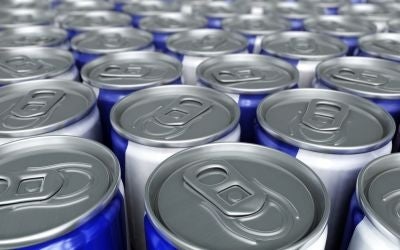Energy drinks have no therapeutic benefit for young people and contain ingredients which are understudied and unregulated, warns a pediatric study.
A group of doctors out of the University of Miami came out swinging in a report published in the March issue of Pediatrics, condemning the use of energy drinks among adolescents and children - 30 to 50 percent of whom have reported consuming the beverage.
According to the report, entitled "Health Effects of Energy Drinks on Children, Adolescents and Young Adults," the sugary drinks contain high and unregulated amounts of caffeine and have been associated with seizures, diabetes, cardiac abnormalities, and mood and behavioral disorders. The report also noted that of the 5,448 caffeine overdoses reported in 2007 in the US, 46 percent involved people younger than the age of 19.
"The known and unknown pharmacology of agents included in such drinks, combined with reports of toxicity, raises concern for potentially serious adverse effects in association with energy-drink use," researchers write. "In the short-term, pediatricians need to be aware of the possible effects of energy drinks in vulnerable populations and screen for consumption to educate families."
Energy drinks such as Red Bull, Rock Star and Monster contain stimulants like caffeine and herbal supplements and are marketed as energy "boosters." The beverage industry has responded by saying that the amount of caffeine is comparable to a cup of coffee. An 8.3 ounce can of Red Bull contains 76 milligrams of caffeine, while an 8 oz cup of coffee can contain between 95 to 200 milligrams of caffeine.
Read the study abstract: http://pediatrics.aappublications.org/cgi/content/abstract/peds.2009-3592v1
Subscribe to Independent Premium to bookmark this article
Want to bookmark your favourite articles and stories to read or reference later? Start your Independent Premium subscription today.


Join our commenting forum
Join thought-provoking conversations, follow other Independent readers and see their replies